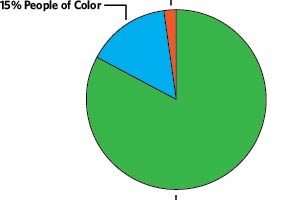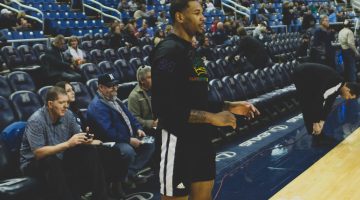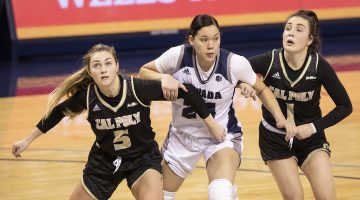As the sun set on David Carter’s tenure as head coach of Wolf Pack men’s basketball two weeks ago, a new sun will potentially rise this Thursday at the next meeting of the Nevada Board of Regents.
National and local sources, CBS Sports and the Reno Gazette-Journal respectively, have pegged former Auburn and UTEP head coach Tony Barbee as the man to replace Carter. While the potential hiring of Barbee, or any other candidate, is huge sports news in Reno, it is just the most recent case of turnover in the Nevada athletic department.
For the most part, the change has been positive: a nationally-ranked baseball team and a more formidable all-around program are examples. However, the more significant issue that university students need to acknowledge is the kind of value that a good athletic department can bring to a university and for the students themselves to capitalize on it.
As the university begins its expansion toward Downtown Reno, it is evident that mid-major schools such as Nevada have great potential for upward mobility. However, in order to achieve this, there must be an emphasis on sports by students, faculty and the community. A number of studies demonstrate that athletic success is positively correlated with the number of applications that a school receives, which will be critical with the introduction of the university’s Master Plan last year.
If you look at a school like Boise State, whose size and standing are similar to Nevada’s, you can see that its profile has been raised exponentially thanks to the success of its nationally-ranked football teams. Before the Chris Petersen era, Boise State was another middle-of-the-road school in the West, but after multiple BCS bowl games, the Broncos are now a national brand. Additionally, a study by Douglas J. Chung, a faculty member of the Harvard Business School, found that when teams are winning on the football field, application rates go up by 18.7 percent on average.
Still not convinced? According to an article in Forbes, Chung’s “Flutie Effect,” which refers to former Boston College quarterback and Heisman Trophy-winner Doug Flutie, is the idea that a successful team will increase applications for a university. In Flutie’s case at BC, the year after he won the Heisman, applications went up by 30 percent over two years.
It is clear that faculty envision extensive growth on campus for years to come, and successful athletics programs can only serve to supplement such expansion. By increasing the volume of applications, universities have the potential to improve academic standards with a larger pool of high school students and greater range in SAT scores and GPAs.
In 2004, the men’s and women’s basketball teams at the University of Connecticut each won a national championship, catapulting the previously rarely-known university to the national stage. Since then, studies have shown a steady increase in overall SAT scores and number of applications. An article by Dr. Ronald B. Woods in the journal Social Issues in Sports goes on to cite a number of other examples including the University of South Florida, the University of Nevada, Las Vegas and Gonzaga.
Gonzaga is a school whose basketball team is the lifeblood of the university by raking in a $2 million profit each season, according to the office of postsecondary education, and also by producing multiple players to go on to the NBA.
This column does not intend to devalue academics; rather, it intends to demonstrate the role that athletics plays in maintaining Tier-One academic status. It’s been shown over time that universities that have some of the most competitive teams on the field also have some of the brightest minds in the classroom. Universities such as Stanford, USC and Michigan have some of the best teams in the country and each of them also have global reputations for academic excellence.
Consequently, it is the responsibility of all members of the Wolf Pack to show support for athletics. Despite the poor year that Nevada basketball had, abandoning a team that is already demoralized will do nothing but exacerbate the problem. In the March 10 issue of The Nevada Sagebrush, Pack center AJ West was quoted in saying, “We feel like we already lost most of the fans and the community, so we just want to play as hard as we can for each other.”
Despite making light of the lack of support, it makes you wonder how the team might perform if playing for the fans. Student-athletes find pride in representing their university, and play with the intention of earning recognition for the school. Thus, it is important to consider the effect on overall performance when the student body they hope to represent leaves them without fans.
Expressing the importance of athletics doesn’t necessarily have to mean anything else is less important; rather, it’s a major talking point for universities and we can’t forget that. As university students we are taught to become well-rounded and a working knowledge of one of the most visible parts of any university is not a maybe, but a must.
The Nevada Sagebrush editorial staff can be reached at cboline@sagebrush.unr.edu and on Twitter @TheSagebrush.












